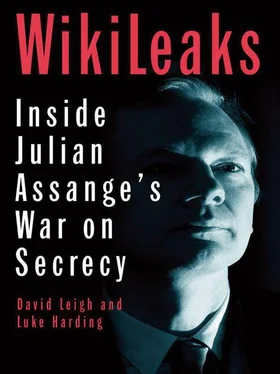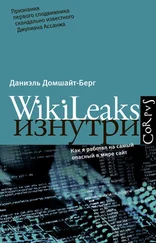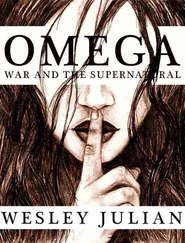Harding, Luke - WikiLeaks - Inside Julian Assange's War on Secrecy
Здесь есть возможность читать онлайн «Harding, Luke - WikiLeaks - Inside Julian Assange's War on Secrecy» весь текст электронной книги совершенно бесплатно (целиком полную версию без сокращений). В некоторых случаях можно слушать аудио, скачать через торрент в формате fb2 и присутствует краткое содержание. Жанр: Старинная литература, на английском языке. Описание произведения, (предисловие) а так же отзывы посетителей доступны на портале библиотеки ЛибКат.
- Название:WikiLeaks: Inside Julian Assange's War on Secrecy
- Автор:
- Жанр:
- Год:неизвестен
- ISBN:нет данных
- Рейтинг книги:3 / 5. Голосов: 1
-
Избранное:Добавить в избранное
- Отзывы:
-
Ваша оценка:
- 60
- 1
- 2
- 3
- 4
- 5
WikiLeaks: Inside Julian Assange's War on Secrecy: краткое содержание, описание и аннотация
Предлагаем к чтению аннотацию, описание, краткое содержание или предисловие (зависит от того, что написал сам автор книги «WikiLeaks: Inside Julian Assange's War on Secrecy»). Если вы не нашли необходимую информацию о книге — напишите в комментариях, мы постараемся отыскать её.
WikiLeaks: Inside Julian Assange's War on Secrecy — читать онлайн бесплатно полную книгу (весь текст) целиком
Ниже представлен текст книги, разбитый по страницам. Система сохранения места последней прочитанной страницы, позволяет с удобством читать онлайн бесплатно книгу «WikiLeaks: Inside Julian Assange's War on Secrecy», без необходимости каждый раз заново искать на чём Вы остановились. Поставьте закладку, и сможете в любой момент перейти на страницу, на которой закончили чтение.
Интервал:
Закладка:
Traynor successfully made contact with Assange’s colleague Birgitta Jónsdóttir, the next day in Brussels. He spotted her in a café with two male companions, including “a guy wearing a large Icelandic woolly jumper”. This turned out to be Assange, but Traynor – having never seen him before – failed to recognise him. “Otherwise I would have grabbed him!” Traynor only caught up with Assange himself at the European parliament event. The only other British reporter there was a junior hack from BBC radio. But the room was full, and there were a number of foreign journalists – among them an Austrian television journalist who Traynor knew had a good nose for a story – so the Guardian correspondent acted swiftly to get Assange away from the crowd as the meeting ended.
They set off together into a warren of parliament corridors and talked privately for half an hour. Traynor thought Assange quiet, cautious and inscrutable. He was impressed by his intellect and quick wit – and though he sometimes found his gnomic answers evasive and hard to follow, “I liked him and I think he liked me.” Traynor was pleased to hear that the WikiLeaks founder presented himself as a big fan of the Guardian . He seemed keen to engage in a collaborative project with a newspaper which had progressive credentials. Assange revealed, significantly, that WikiLeaks was planning to dump “two million pages” of raw material on its website. Traynor asked what it was about. Assange replied simply: “It concerns war.” Assange gave Traynor his local Brussels cellphone number; they agreed to meet again the next day.
Davies was meanwhile anxiously lunching with Rusbridger at the ground-floor restaurant in Kings Place, the Guardian ’s London headquarters, overlooking the moored houseboats on the Regent’s Canal. In the middle of their lunch, Traynor’s email arrived. It confirmed that Assange was willing to meet. That night Davies didn’t sleep: “I was too excited.” First thing next morning he was on the high-speed train from London St Pancras station, through the Channel tunnel and on to Brussels.
As his Eurostar carriage shot through the green Kent countryside, he formulated and reformulated his pitch. As he saw it, Assange was facing four separate lines of attack. The first was physical – that someone would beat him up or worse. The second was legal – that Washington would attempt to crush WikiLeaks in the courts. The third was technological – that the US or its proxies would bring down the WikiLeaks website. The fourth and perhaps most worrisome possibility was a PR attack – that a sinister propaganda campaign would be launched, accusing Assange of collaborating with terrorists.
Davies also knew that Assange was disappointed at the reception of his original Apache video, single-handedly released in Washington. The story should have set off a global scandal; instead the narrative had flipped, with attention focused not on the murder of innocent Iraqis but on WikiLeaks itself.
There was another important concern. If the Guardian alone were to obtain and publish the diplomatic cables, the US embassy in London might seek to injunct the paper. The UK is home to some of the world’s most hostile media laws; it is regarded as something of a haven for dodgy oligarchs and other dubious “libel tourists”. What was needed, Davies felt, was a multi-jurisdictional alliance between traditional media outlets and WikiLeaks, possibly encompassing non-governmental organisations and others. If the material from the cables were published simultaneously in several countries, would this get round the threat of a British injunction? Davies opened his notebook. He wrote: “ New York Times/Washington Post/Le Monde .” He added: “Politicians? NGOs? Other interested parties?” Maybe the Guardian could preview the leaked cables and select the best story angles. The Guardian and WikiLeaks would then pass these “media missiles” to other friendly publications. He liked that plan. But would Assange buy it?
Over in Brussels, Traynor was discovering, as many others had, that having Assange’s mobile number and actually being able to get in touch with him were two very different things. Fearing that the Australian had gone awol, Traynor headed for the Hotel Leopold on the Place Luxembourg, where Assange was staying, next to the European parliament. Traynor went up to his room and banged on the door. Assange eventually emerged and invited Traynor in. The room resembled that of a modern monk: Assange’s worldly possessions apparently comprised a couple of rucksacks stuffed full of gadgets, three laptops, and a jumble of mobile phones and Sim cards. His wardrobe seemed to be a T-shirt, a jumper and a pair of jeans.
Assange was in mischievous good spirits. The former hacker told Traynor: “You guys at the Guardian , you have got to do something about your security. You have got to get your email secure and encrypted.”
“He knew the contents of the email I had sent to London,” Traynor said, somewhat amazed. “He was showing off, but also expressing concern.”
When Davies arrived in town, the two Guardian reporters repaired again to the Leopold. They dialled upstairs. Assange – apparently still on Australian time – had crashed out again. He finally appeared 15 minutes later. The three sat in the hotel’s covered courtyard café. It was 3.30pm; nobody else was around.
What followed was a six-hour conversation. It would result in an extraordinary, if sometimes strained, partnership between a mainstream newspaper and WikiLeaks – a new model of co-operation aimed at publishing the world’s biggest leak. A Vanity Fair feature subsequently called it a courtship between “one of the oldest newspapers in the world, with strict and established journalistic standards” and “one of the newest in a breed of online muckrakers”. The article’s American author, Sarah Ellison, wrote: “The Guardian , like other media outlets, would come to see Assange as someone to be handled with kid gloves, or perhaps latex ones – too alluring to ignore, too tainted to unequivocally embrace.”
The hopes of an accord risked derailment from the outset, however. Assange had already positioned himself as an ideological enemy of Davies, whose high-profile campaign to force Rupert Murdoch’s tabloid the News of the World to confront and stop its phone-hacking had previously been denounced by Assange as a contemptible attempt by “sanctimonious handwringing … politicians and social elites” to claim a right to privacy. Assange had accused Davies of “a lack of journalistic solidarity” for criticising the News of the World – calling it merely “an opportunity to attack a journalistic and class rival”. Assange now failed to disguise a faint contempt for the MSM in general.
Assange nevertheless struck Davies as “very young, boyish, rather shy – and perfectly easy to deal with”. He drank orange juice. Delicately, Davies began setting out the options. He told Assange it was improbable anybody would attack him physically; that would be a global embarrassment for the US. Rather, Davies predicted, the US would launch a dirty information war, and accuse him of helping terrorists and endangering innocent lives. WikiLeaks’ response had to be that the world was entitled to know the truth about the murky US-led wars in Iraq and Afghanistan.
“We are going to put you on the moral high ground – so high that you’ll need an oxygen mask. You’ll be up there with Nelson Mandela and Mother Teresa,” Davies told Assange. “They won’t be able to arrest you. Nor can they shut down your website.”
Assange was receptive. This wasn’t the first time WikiLeaks had worked with traditional news media, and Assange had decided it might be a good idea on this occasion to do so again. Then Assange revealed the scale of his cache. WikiLeaks had in fact obtained, he confided, logs detailing every single US military incident in the Afghanistan war. “Holy Moly!” remarked Davies. Not only that, Assange added, the website also had similar war logs from Iraq from March 2003. “Fuck!” exclaimed Davies.
Читать дальшеИнтервал:
Закладка:
Похожие книги на «WikiLeaks: Inside Julian Assange's War on Secrecy»
Представляем Вашему вниманию похожие книги на «WikiLeaks: Inside Julian Assange's War on Secrecy» списком для выбора. Мы отобрали схожую по названию и смыслу литературу в надежде предоставить читателям больше вариантов отыскать новые, интересные, ещё непрочитанные произведения.
Обсуждение, отзывы о книге «WikiLeaks: Inside Julian Assange's War on Secrecy» и просто собственные мнения читателей. Оставьте ваши комментарии, напишите, что Вы думаете о произведении, его смысле или главных героях. Укажите что конкретно понравилось, а что нет, и почему Вы так считаете.












